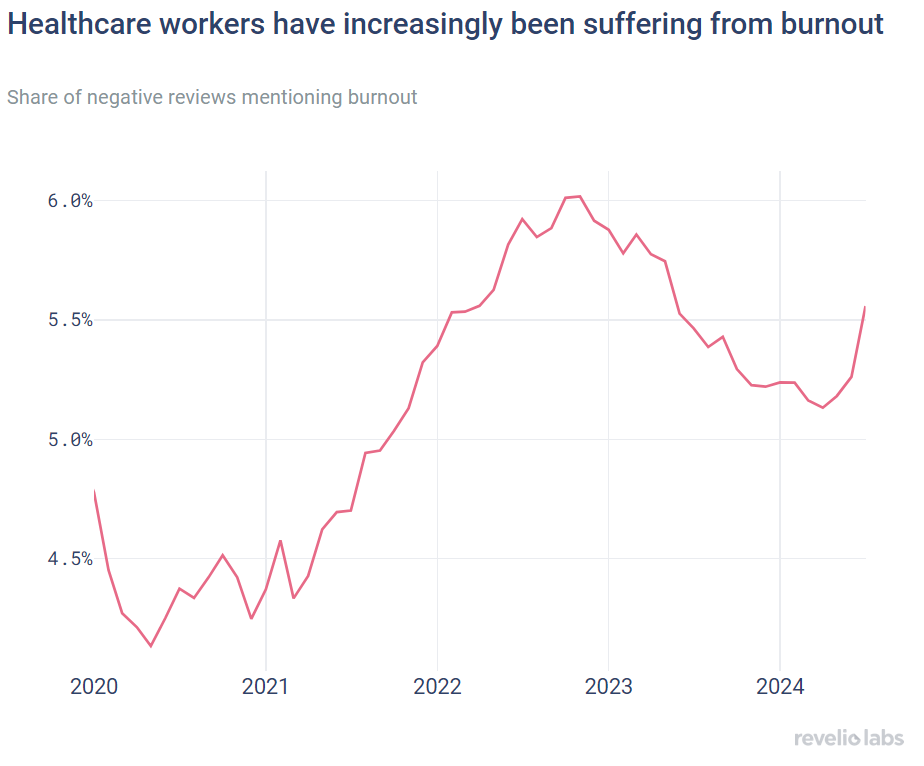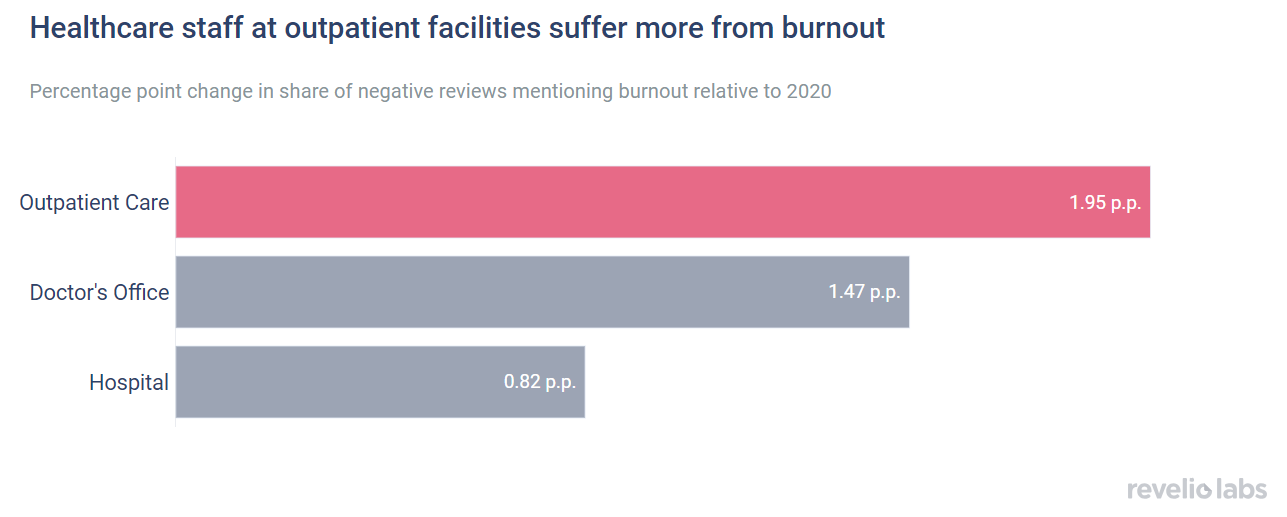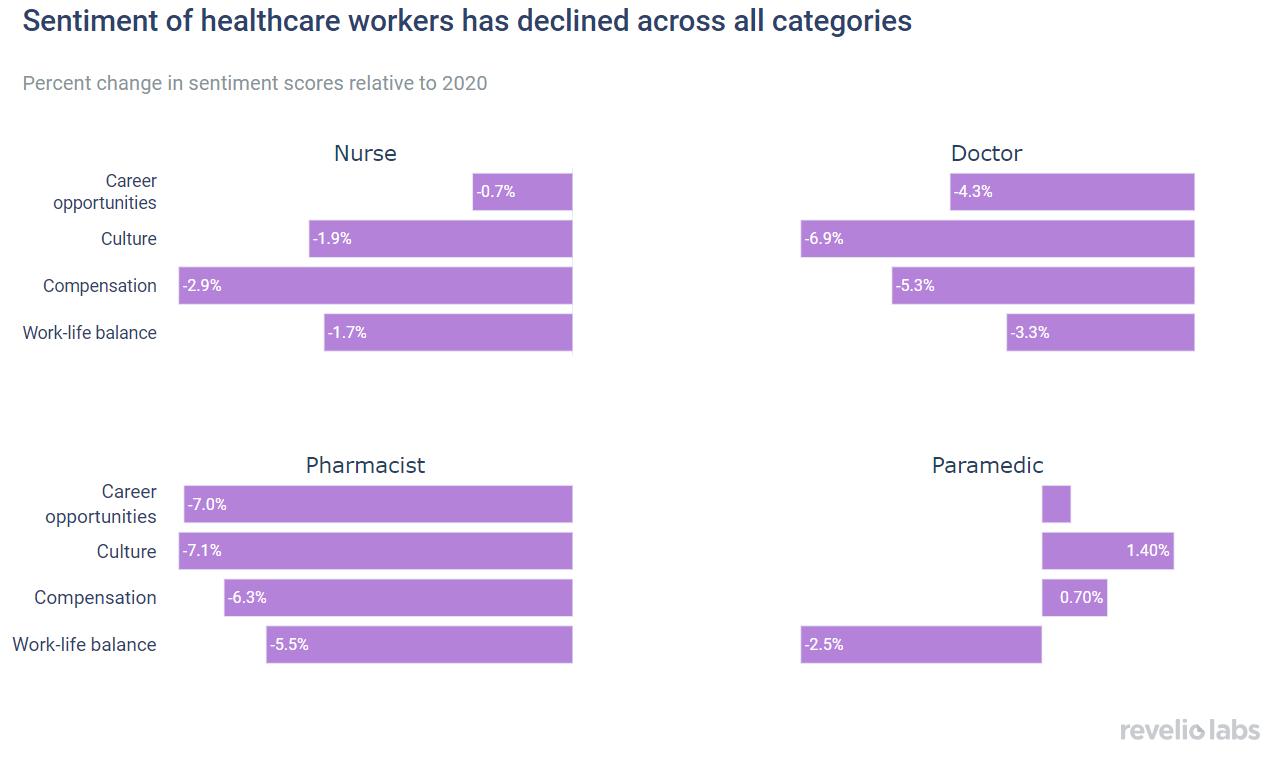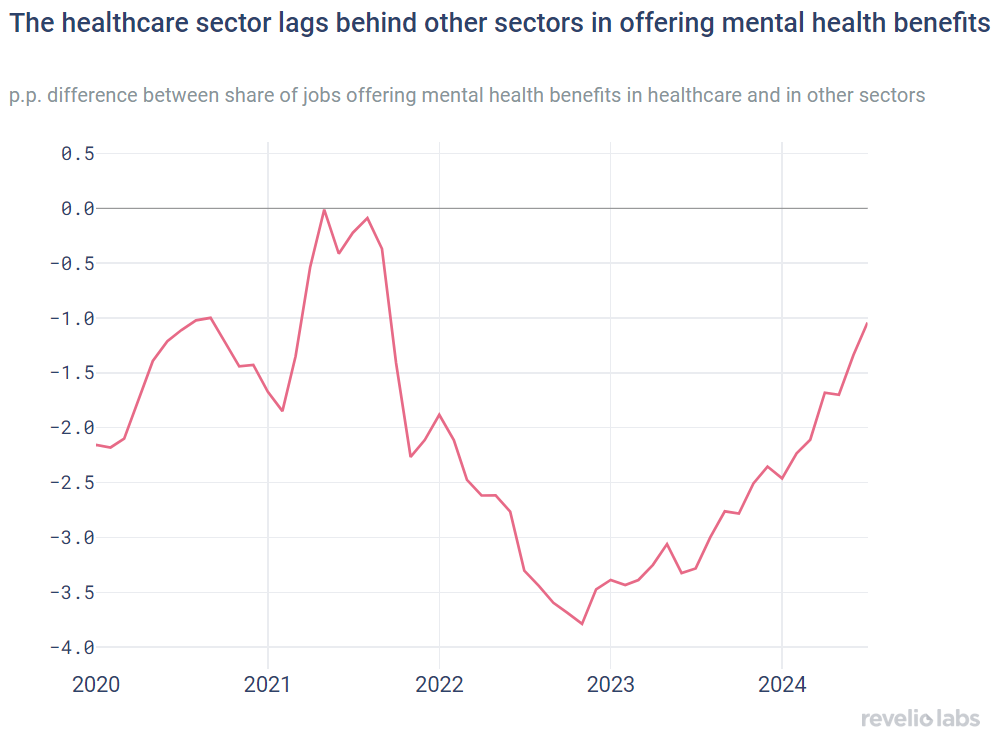The Healthcare Industry’s Mental Health Paradox
Healthcare workers are not getting the mental health benefits they need

Mentions of burnout and anxiety-related terms have notably increased in healthcare workers’ employer reviews, providing evidence of the mental health crisis among healthcare workers that the CDC has highlighted since before the COVID-19 pandemic. Outpatient care workers appear to be the most affected by burnout and anxiety.
Different healthcare worker groups are concerned about different issues. For example, nurses are most concerned about compensation and benefits, while physicians report the greatest dissatisfaction with workplace culture and values, and paramedics are most displeased with work-life balance.
While the share of healthcare job postings advertising mental health and well-being has increased notably since 2021, the healthcare sector remains below the national average in terms of offering mental health benefits to its employees.
Healthcare roles stand out as some of the most demanding occupations, requiring workers to navigate persistent pressure and extended work hours. The CDC has highlighted the ongoing crisis of burnout among healthcare professionals, a concern that predates the onset of the COVID-19 pandemic. These workers often face exposure to trauma, moral distress, and difficult patient interactions, further straining their mental well-being. The mental health crisis in the healthcare sector can affect patient care and contribute to staffing shortages. In this newsletter, we explore the challenges healthcare workers face, resources available to support them, and steps we can take to prioritize their mental health.
First, using Revelio Labs' employee sentiment data, we document evidence of the healthcare worker mental health crisis. There was a significant rise in mentions of burnout- and anxiety-related terms in negative employee reviews across the healthcare sector throughout 2021 and 2022. While this concerning trend has shown signs of abating, the share of employee reviews mentioning burnout-related words remains considerably higher than pre-pandemic levels.


Sign up for our newsletter
Our weekly data driven newsletter provides in-depth analysis of workforce trends and news, delivered straight to your inbox!
Revelio Labs data suggest a disproportionate impact of burnout on outpatient facilities’ staff compared to other healthcare workers. Negative reviews mentioning burnout have risen most significantly among healthcare workers at outpatient facilities relative to those in doctor's offices and hospitals. This trend indicates that the unique demands and pressures faced by outpatient facility staff contribute more heavily to their overall stress and job dissatisfaction. Factors such as high patient turnover, limited resources, and the need for rapid decision-making in outpatient settings may exacerbate burnout.


When comparing sentiment ratings across various healthcare worker groups, we find that nurses’ sentiment regarding compensation and benefits has declined most significantly. This aligns with our prior findings that highlighted lagging nurse salaries compared to other healthcare professionals and their failure to keep pace with inflation. Physicians report the greatest dissatisfaction with workplace culture and values. Pharmacists, on the other hand, express the most disappointment with career advancement opportunities. Despite their critical role in patient care and medication management, pharmacists often face limited pathways for career progression. Finally, paramedics' sentiment scores indicate their most significant challenges are in achieving work-life balance. The demanding nature of their job, with long hours, unpredictable shifts, and high-stress situations, contributes to this struggle.


Healthcare institutions have demonstrated a growing commitment to addressing the mental health crisis among their workforce. Since 2021, the share of job postings for healthcare workers that include mental health benefits has increased from 8% to 15%. Despite this progress, the healthcare sector remains below the national average in terms of offering mental health benefits to employees. In 2021, equal shares of job postings for health care workers and other professions offered mental health benefits. Currently the share of job postings for healthcare workers that include mental health benefits is 2.5 percentage points lower than the national average. The widening gap highlights the need for continued efforts to prioritize mental health support, ensuring that all healthcare workers have access to the necessary resources to manage stress and prevent burnout.


The mental health of the healthcare workforce requires urgent attention. While some healthcare institutions are taking positive steps, more needs to be done to address burnout, improve working conditions, and prioritize the well-being of those who care for others. This includes implementing comprehensive mental health support programs, fostering a more supportive and inclusive workplace culture, and ensuring adequate staffing levels to reduce the burden on individual workers.

